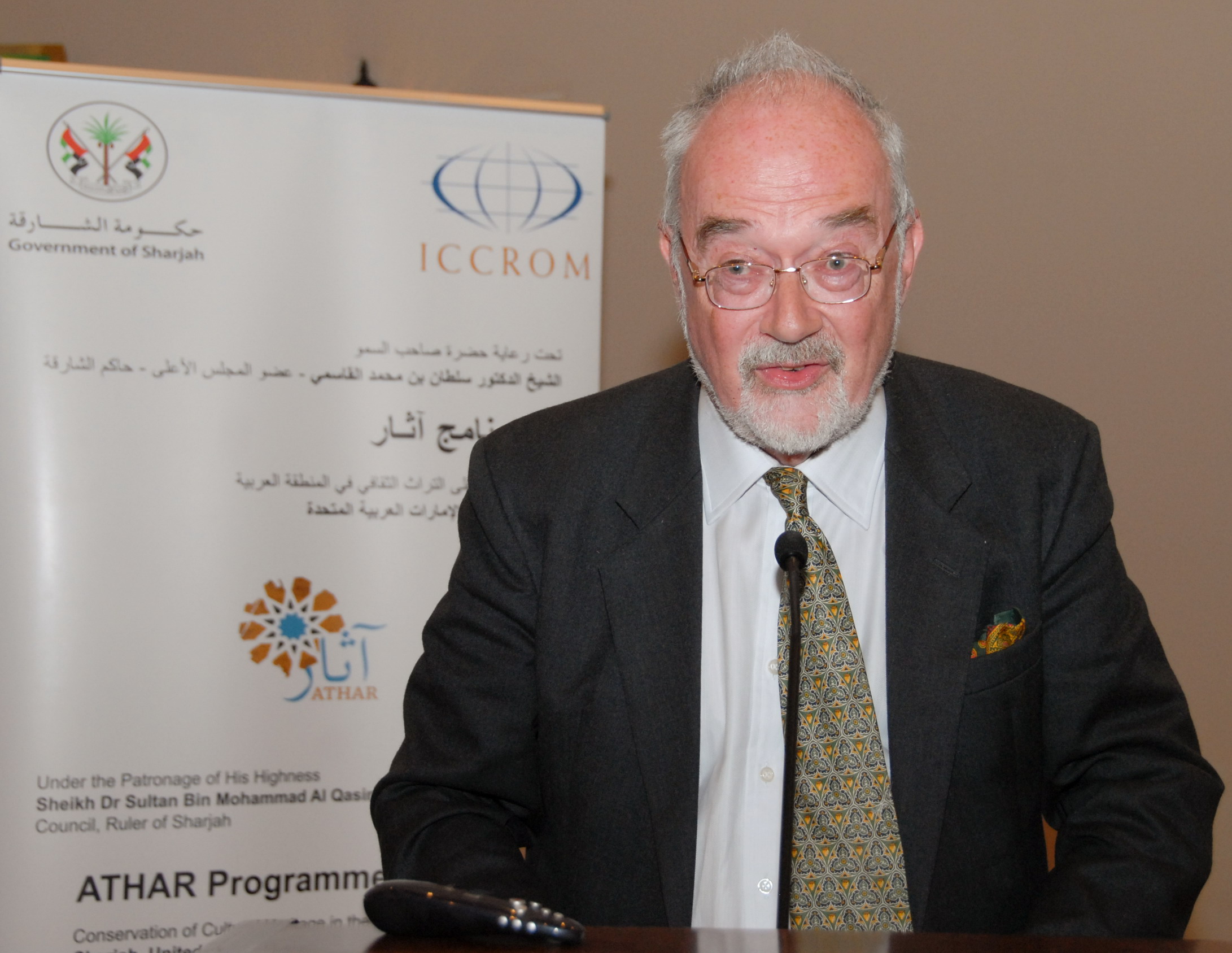In November 2004, at the Ninth Award Cycle of the Aga Khan Award for Architecture, Mawlana Hazar Imam observed that “in recent years, Islamic architecture seemed to have lost its identity and its inspiration.” He added that this resulted in “cities, villages, and rural areas transformed by the insidious introduction and expansion of inappropriate and irrelevant architecture and planning.”
 ATHAR participants pose for a photograph. The 2009 lecture series was held at the Ismaili Centre, Dubai. Rafiq Ally
ATHAR participants pose for a photograph. The 2009 lecture series was held at the Ismaili Centre, Dubai. Rafiq AllyThe International Centre for the Study of the Preservation and Restoration of Cultural Property (ICCROM) is an intergovernmental organisation that advocates the conservation of cultural heritage. In its mission statement it describes itself as “the only institution of its kind with a worldwide mandate to promote the conservation of all types of cultural heritage, both movable and immovable.” The Centre focuses on improving the quality of conservation practice, whilst increasing awareness of the importance of preservation of cultural heritage.
Launched in 2004, the Centre's ATHAR Programme focuses on the management of heritage sites in the Arab region. The annual six-week lecture series brings together experts from all over the Arab world, and draws participants from a range of professions including architecture, engineering, and archaeology.
 Dr John Yarwood described the traditional architecture and urbanism of Al-Muharraq, an important historic town in the Bahrain. Rafiq Ally
Dr John Yarwood described the traditional architecture and urbanism of Al-Muharraq, an important historic town in the Bahrain. Rafiq AllyThe Architecture Heritage Society in the UAE, in conjunction with the Ismaili Centre, Dubai, hosted the ATHAR public lecture series in October and November 2009. Dr Zaki Aslan, Project Manager for ATHAR, described the Ismaili Centre as a fitting and “excellent atmosphere” to have discussions on cultural heritage. Attended by an average of 70 participants per event, the lecture series aimed to promote regional education and professional development opportunities in the conservation of cultural heritage and community development.
Facilitated by internationally acclaimed conservation experts, the lectures provided individuals an opportunity “to learn what is happening at the cutting edge of conservation in other parts of the world, and to consider how this experience might best be applied locally,” according to Peter Jackson, the Chairman of the English-speaking Chapter of The Architectural Heritage Society of UAE. Rashad Bukhash, Chairman of the Architectural Heritage Society for the UAE and Director of the General Projects Department at Dubai Municipality, also noted the role of the lecture series in enhancing “knowledge capacity in the (UAE) with regard to architectural conservation.”
 The ATHAR lecture series brought together architects, engineers, archaeologists and other professionals to hear experts from all over the Arab world. Rafiq Ally
The ATHAR lecture series brought together architects, engineers, archaeologists and other professionals to hear experts from all over the Arab world. Rafiq AllyA case study showcasing the Aga Khan Trust for Culture's (AKTC) work in the Darb al-Ahmar district of Cairo was presented in the final lecture, “Reconciling Conservation and Development: The Case of Cairo.” It highlighted some of the strategies employed by the AKTC, which reconcile conservation and development in urban rehabilitation. These include micro-credit and employment generation, institutional strengthening, restoration of monuments, and open space and infrastructure upgrading.
Seeking to foster a constructive exchange of knowledge while building capacity in the region, the Ismaili Centre, whose architecture reflects a balance between tradition and modernity, served as an ideal venue for the lecture series.






